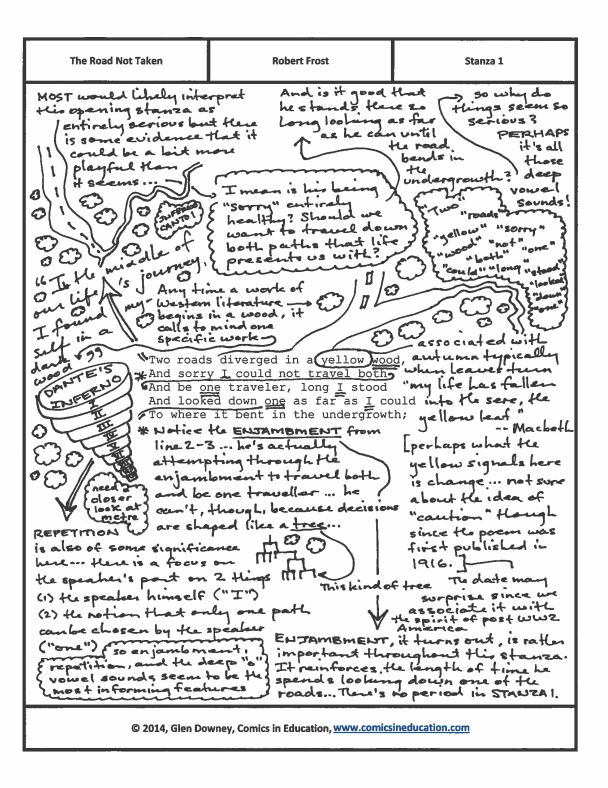

The speaker says that he will still be telling about this decision many years later.So the speaker is probably talking of years, not months.We don't know exactly when, but we know that it's “ages and ages hence.".Lines 16-17 I shall be telling this with a sigh But sometimes our decisions take us to other decisions, and yet still others, and it's impossible for us to retrace our steps and arrive back at that original decision.In any life decision, we do justify our decision by thinking we can always come back, try a different option later.That is why he doesn't think he'll ever be able to come back and take that other path.Then one ends up very far from where you started. He says how "way leads on to way" – how one road can lead to another, and then another.The speaker agrees that his hopes to come back and try the other path may not really be practical.Lines 14-15 Yet knowing how way leads on to way, I doubted if I should ever come back. The "Oh" at the beginning and the exclamation amrk at the end tell us that the speaker feels strongly about his choices.This is how people deal with difficult choices They say "We can always come back and try the other option ater,".Is he now justifying his choice of path by saying he'll come back to the one he missed later?.The speaker seems to now regret his decision of choosing the other path.Line 13 Oh, I kept the first for another day! The paths are covered with leaves, which haven't been turned black by steps crushing them.

Hence the speaker is the probably among the first to travel on these paths on that day.But we find out something more about the setting, It is morning time.Again the speaker says that the paths are equal.Lines 11-12 And both that morning equally lay In leaves no step had trodden black. The speaker says that the people passing on the other path may have worn it down just as much as the path he had taken."The passing there" refers to the people passing along that road, probably on foot just like our speaker,."As for that" refers to the other path.He now changes his mind and admits that maybe they were equal after all.The speaker really seem to be unable to make up his mind!.Lines 9-10 Though as for that the passing there Had worn them really about the same, It seems as if it hasn't been walked upon much, was grassy and did not look worn.Then the speaker tells us why he thinks that the path is better.As he is not sure, he feels it is only "perhaps" better.Soon enough the speaker seems unsure about his as he now says that the path he gave up was probably better.Lines 7-8 And having perhaps the better claim, Because it was grassy and wanted wear

For example: what career choice to make between two or more possible choices - Each is different but potentially equally good.His choosing between two roads can be compared to choosing the path to our future.He means the road is just as nice as the other one.The speaker describes this road to be "as just as fair.".



 0 kommentar(er)
0 kommentar(er)
